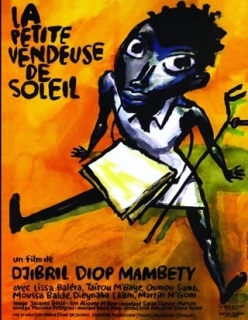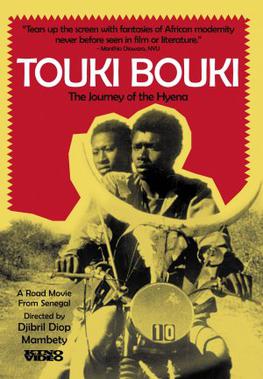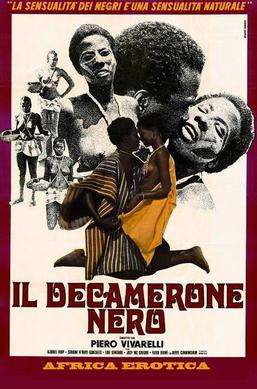Wasis Diop is a Senegalese musician of international renown, known for blending traditional Senegalese folk music with modern pop and jazz.

Djibril Diop Mambéty was a Senegalese film director, actor, orator, composer and poet. Though he made only five feature films and two short documentary films, they received international acclaim for their original and experimental cinematic technique and non-linear, unconventional narrative style.
Diop, uncommonly spelled Dioup, is a popular Wolof surname in Senegal and Gambia, and may refer to:
Trade unionism is a powerful force in the politics, economy, and culture of Senegal, and was one of the earliest trades union movements to form in Francophone West Africa.
Ben Diogaye Bèye is a Senegalese filmwriter, filmmaker, film producer and journalist. He was the assistant director of nearly a dozen Senegalese films, including Touki Bouki with Djibril Diop Mambety, Baks with Momar Thiam, Sarah et Marjama with Axel Lohman, and the co-screenwriter of the latter two.

The cinema of Senegal is a relatively small film industry which experienced its prime from the 1960s through to the early 1980s, but has since declined to less than five feature films produced in the last ten years. Senegal is the capital of African cinema and the most important place of African film production after its independence from France in 1960.

Gueule Tapée-Fass-Colobane is a commune d'arrondissement of the city of Dakar, Senegal. As of 2013 it had a population of 52,270.

Hyenas is a 1992 Senegalese film adaptation of Friedrich Dürrenmatt's Swiss-German satirical tragicomedy play The Visit (1956), directed by Djibril Diop Mambéty. The intimate story of love and revenge parallels a critique of neocolonialism and African consumerism. It was entered into the 1992 Cannes Film Festival.

Assane Seck was a Senegalese politician from Fogny. He served as Foreign Minister of Senegal from 1973–1978. He was said to be "forced into political retirement".
Le Franc is a 1994 Senegalese comedy film, directed by Djibril Diop Mambéty.

La Petite Vendeuse de Soleil is a 1999 Senegalese drama film, directed by Djibril Diop Mambéty which premiered after his death in 1998.

Badou Boy is a 1970 Senegalese film, directed by Djibril Diop Mambéty. The film follows the adventures of Badou Boy, a cheeky young man, as he travels through the streets of Dakar on the city buses.

Touki Bouki is a 1973 Senegalese drama film written and directed by Djibril Diop Mambéty. It was screened at the 1973 Cannes Film Festival and the 8th Moscow International Film Festival.
Parlons Grand-mère is a Senegalese 1989 short documentary film.
Mambéty For Ever is a 2008 documentary film.

The Black Decameron is a 1972 Italian costume drama comedy film directed by Piero Vivarelli.

Mati Diop is a French film director and actress. She won the Grand Prix at the 2019 Cannes Film Festival for her feature film debut, the supernatural romantic drama Atlantics, and the Golden Bear at the 2024 Berlin International Film Festival for her second feature film, the documentary Dahomey. As an actress, she is known for the drama film 35 Shots of Rum (2008).
Moustapha Ndoye was a Senegalese photographer, film director and screenwriter.
Moussa Bathily is a Senegalese history teacher, journalist, film director and producer, screen writer, and novelist.









